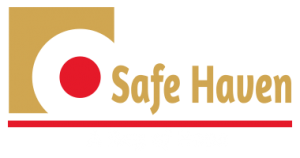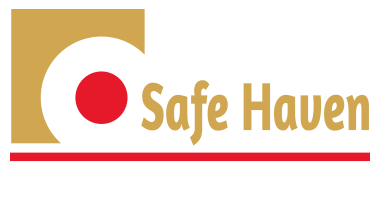About Safe Haven – A Ray of Hope
Due Diligence Policy
We may partner with a range of different organizations and on different projects, so take a risk based approach to assessing suitability and ask for specific information to be disclosed, as part of the grant application process.
For technical legal or financial issues, this may involve seeking appropriate professional opinion and guidance.
The Scale of Risk – Factors to Consider
- Is the amount of money involved substantial?
- Is the project/contract particularly sensitive, important, complex or large scale?
- Is the organisation/individual well known and respected, or might they hold views, undertake activities or work in an area that may potentially be problematic?
- How much potential is there for things to go wrong and what’s the worst that could happen?
Conducting Due Diligence
In light of the degree of risk, carry out such checks as are necessary to ensure that you are able to adequately mitigate this.
But, bear in mind peoples’ right to privacy, so only carry out investigation where there is a legitimate business purpose in doing so, ensure that findings are kept securely, only disclosed to those who need to know this information and not retained any longer than necessary.
If preparing a report, be objective, stick to facts, insofar as possible, and take into account the reliability (or not) of your sources to ensure your report is balanced.
Basic Checks
- If they have a website, check that what they’re proposing fits with what’s on there. If available, review what it says about key members of their team and, download and review, their annual report/accounts.
- Carry out an internet search. On the company, if applicable, and key individuals, to see if there is anything of concern. Don’t just check page 1, as older issues may be sufficiently serious to still be relevant.
- Speak to someone who has worked with them, or knows their sector well. A phone call is best, as people tend to be more open.
- Take up references, if appropriate.
Additional Checks
Depending on the nature, location of a project and the degree of risk, applicable additional checks may be carried out, using the framework below.
Ethics – activities that are illegal or incompatible with our values. Issues such as corruption/bribery, criminal activities, discrimination, exploitation of people, or the environment, or involvement with radical groups, or companies, regimes, products or services that conflict with our aims/values.
- Confirmation that there are adequate safeguarding procedures in place and being consistently applied to ensure vulnerable people are kept safe from harm.
- For large UK organisations, compliance with the Modern Slavery Act UK, including their supply chain management.
- If appropriate, designated peopleand proscribed organisations
For UK organisations, the Glass Door site may offer you insight into what their staff think about them.
Donations -consider issues, such suspicious donations, or managing large anonymous gifts, or those from vulnerable individuals.
Compliance – significant breaches of regulatory or other frameworks, investigations by government agencies/police, court cases, debt default, or disqualifications.
- Check with any relevant regulator for reports or other information that might be available – UK regulators.
- Confirm registration with any relevant UK or other trade/professional bodies and that any licenses, qualifications or insurances are held and in-date.
- For UK individuals, checks for disqualified director, insolvency/bankruptcyor Charity Commission automatic disqualification.
- For donors – potentially tainted donations(tax avoidance schemes).
Finance – risk of takeover, sustained annual operating losses, level of leverage (debt) too high for their sector, bad credit risk, liquidity (cash flow) issues, weak asset base, unusual related party or intercompany transactions, or significant amounts of capital being taken out of company, adverse comments by auditors, court judgements, significant recent debt restructuring/profit warnings or redundancies.
- If applicable, the Charity Commission for England and Wales, OSCR (Scotland), CCNI (Northern Ireland), UK Companies House (or other registrar) records and obtain a copy of their accounts, if available.
- Buy an online company assessment/risk report.
Ability to Deliver – capacity to deliver services/products, track record in delivery, security around key staff (eg a small company relying on a single individual), any supply chain issues (eg reliance on shipments from overseas), or an organisation that has operated in only a single area delivering in an entirely new one.
- Check during negotiations and take up references specifically covering any areas of concern.
Reputational Risk – any potential negative media attention, or concerns from other funders/partners from being associated with this company/individual.
Contracts – check that the balance between the costs, benefits and liabilities is fair, and there are no onerous or unreasonable obligations.
Conflicts of Interest – ensure our conflict of interest policy is complied with. Additionally, our sector is driven by passion and funding is hugely challenging for many, which brings with it the risk of urgent need clouding thinking. The fundraisers and project leaders may well be best placed to carry out due diligence. However, their findings should be reviewed and approved by someone with the necessary experience and seniority, who is also sufficiently and demonstrably distant from the issue.
Contracts/Agreements – deliverables wholly charitable in nature, clearly specified (quantity/quality/timescale), clear monitoring and reporting throughout and at end of project, with provision to cancel/claw back funding, if necessary.
Individuals
There may be circumstances where you may consider it appropriate to check individuals. There are a variety of checks that could be carried out, including if someone:
- is currently declared bankrupt (or is subject to bankruptcy restrictions or an interim order) or has an individual voluntary agreement (IVA) with creditors
- is disqualified from being a company director
- has previously been removed as a trustee by either the commission or the High Court due to misconduct or mismanagement. Charity Commission automatic disqualification rules. You can check individuals names’ here.
- Is listed on any UK registers of court and other judgements (small fee).
Approval and Review
| Approval By | Date | Next Review Date |
| Trustee Board | Mar 21 | Mar 22 |

